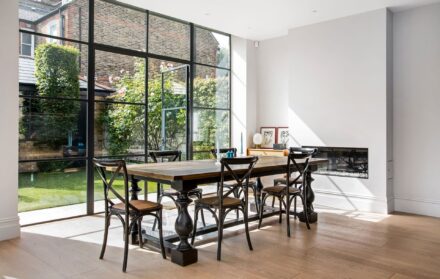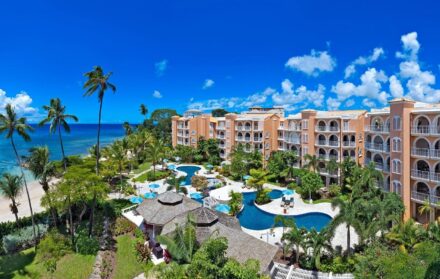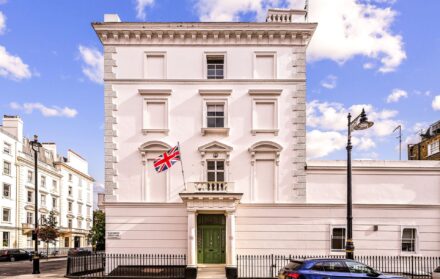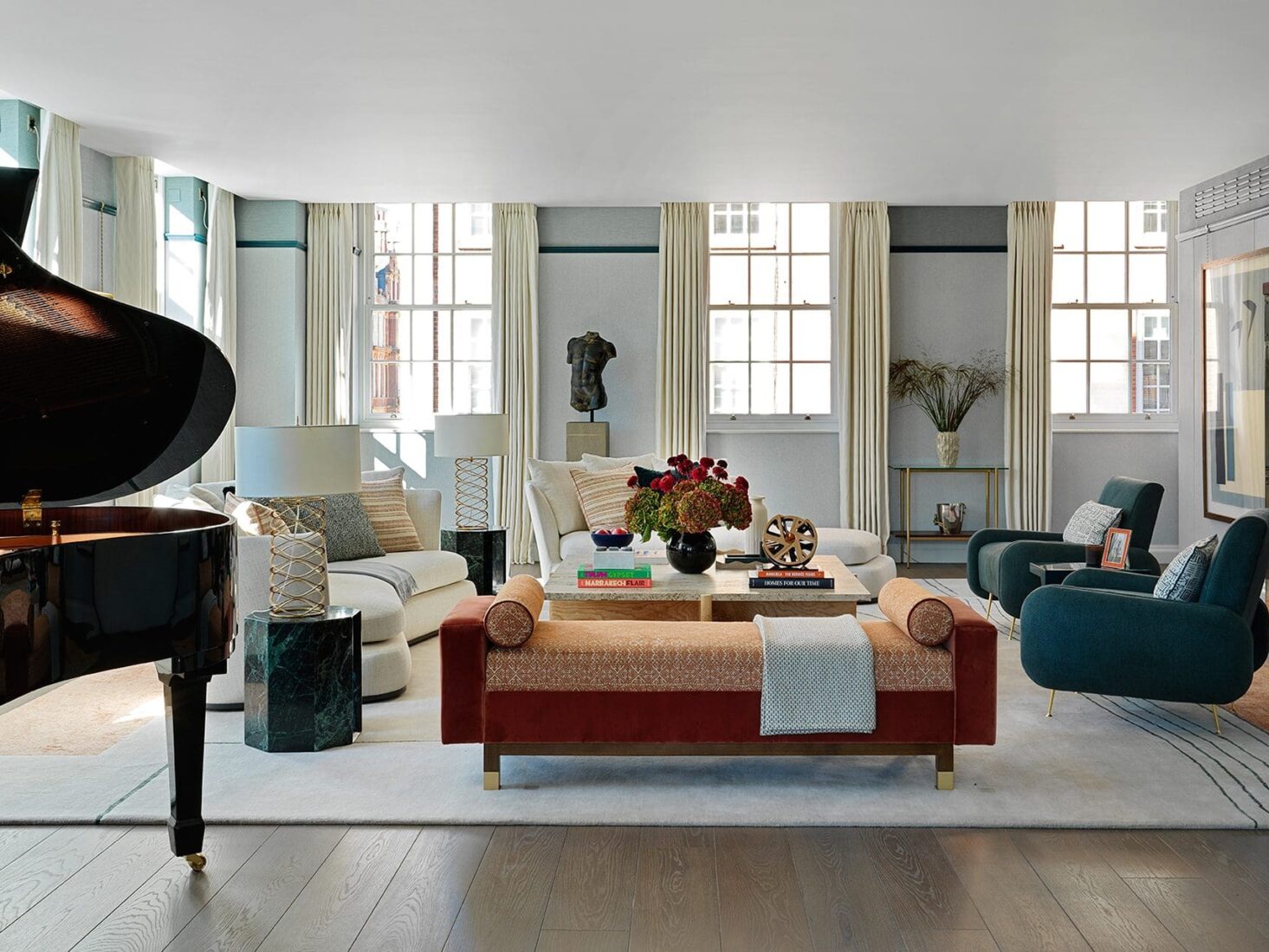
Behind the façade: Finchatton co-founder Alex Michelin on his new venture, Valouran
22 years after co-founding luxury proper developer Finchatton, Alex Michelin is stepping away from the business to concentrate on “bigger things”
I’m going to have to find a new post office. Alex Michelin is knocking down the one I use. The Tesco, too. And the Boots. In fact, Alex Michelin is knocking down the entire parade of shops opposite our Queensway offices. Superdrug? That’s got to go. Plus, a pound shop, a hardware shop, and one of those shops that sells suitcases alongside plastic Union Jack bowler hats and cardboard facemasks of the Royal Family (in fairness, that shop came into its own over the past couple of years).
It’s all to make way for The William, a hangar-sized, six-storey mixed-use development of high-spec homes, bougie shops and the type of offices that come with breakout spaces and boiling water on tap. The William has been designed by Foster + Partners. So it looks cracking. It’ll cost around £400 million, which is a lot of money, but small beer compared to what’s been keeping Michelin busy on the other side of the street.
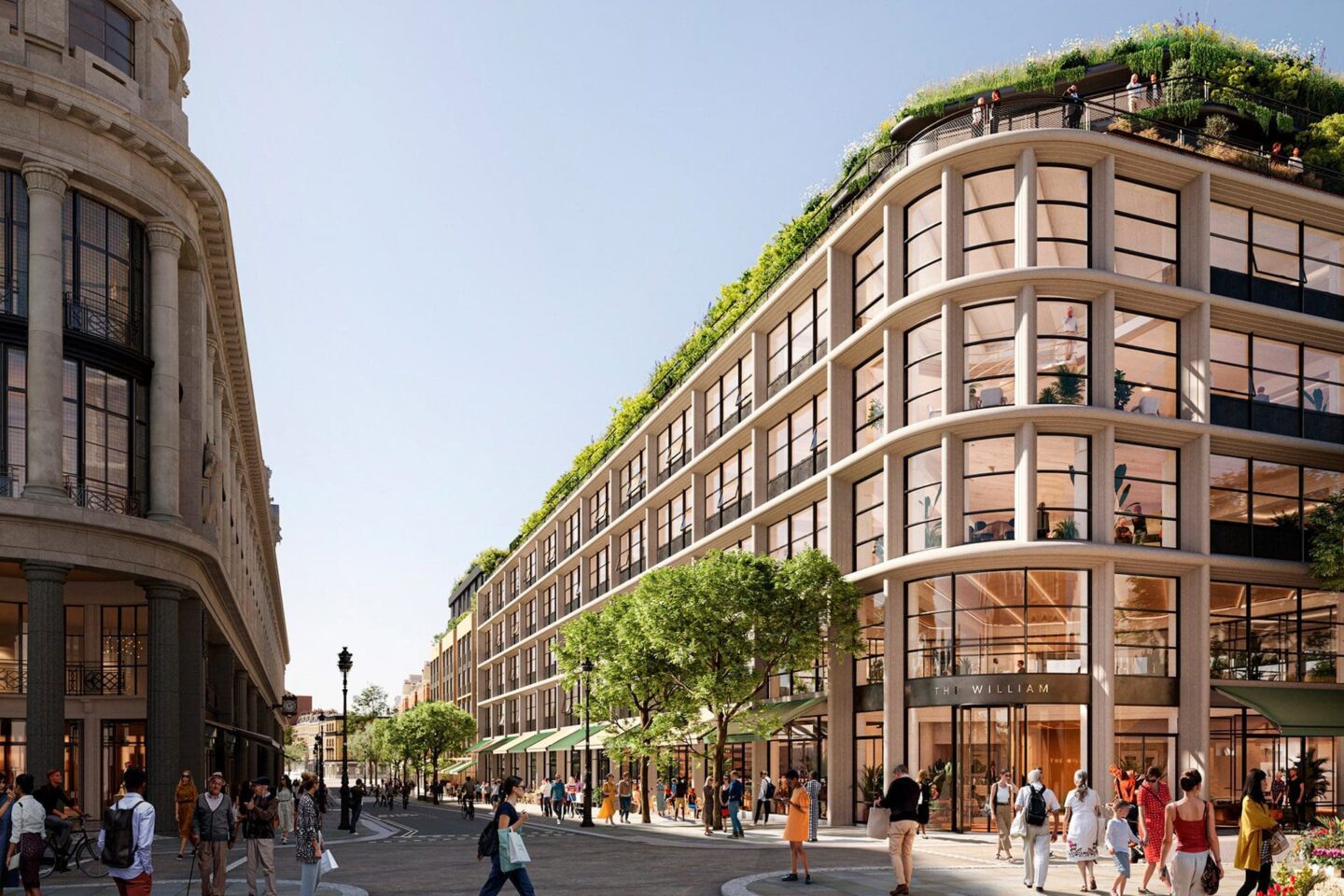
The William, you see, is named after William Whiteley, who, in 1863, founded a department store on the spot opposite my soon-to-be-flattened post office. People remember Whiteleys as that naff shopping centre near Westbourne Grove. It was, in fact, London’s first department store. By 1911 it had, supposedly, flourished into the largest shop in the world. On its roof was a theatre and golf course. ‘Everything from a pin to an elephant,’ went the slogan.
Next year, Whiteleys, which closed for good in 2018, will open as The Whiteley, a collection of 139 residences, shops, restaurants, a public courtyard, and the UK’s first Six Senses hotel. The project is expected to cost £1.5 billion, almost twice the cost of Wembley Stadium.
“I’m not just saying this because it’s one of ours,” says Michelin, who, for the moment, heads up Finchatton, the luxury developer spearheading the project. “The Whiteley really is unique. It is completely game-changing an area, in the same way that the development of King’s Cross transformed that area. We are literally changing an entire high street.”
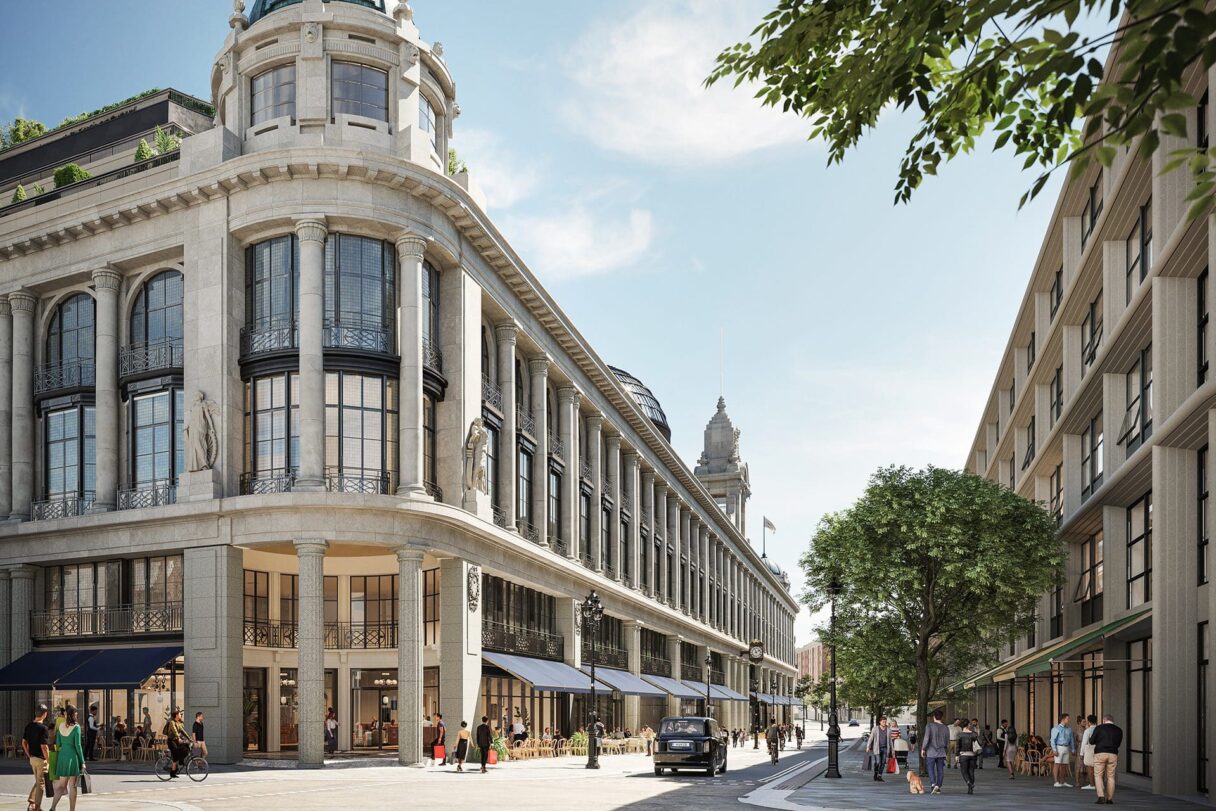
Introducing Valouran
If you’ve spent much of the previous two decades in West London, you’ll recognise the name Finchatton. Founded in 2001 by Michelin and his school friend, Andrew Dunn, the company started off designing interiors of single units in Mayfair and Belgravia. Before long, the company had become the go-to outfit for super-spec refurbishments in the west of the capital. There was a time when ‘Finchatton’ seemed to be emblazoned on the hoarding of every luxury development you walked past.
The Whiteley represents the firm’s biggest project to date – part of a £3 billion redevelopment of Bayswater that aims to transform the dreary neighbourhood into a Parisian-style streetscape with glass pavilions and al fresco dining spots. The project also signposts the direction Michelin will be moving towards with his new venture, Valouran. Because, after 22 years, Michelin and Dunn are going their separate ways.
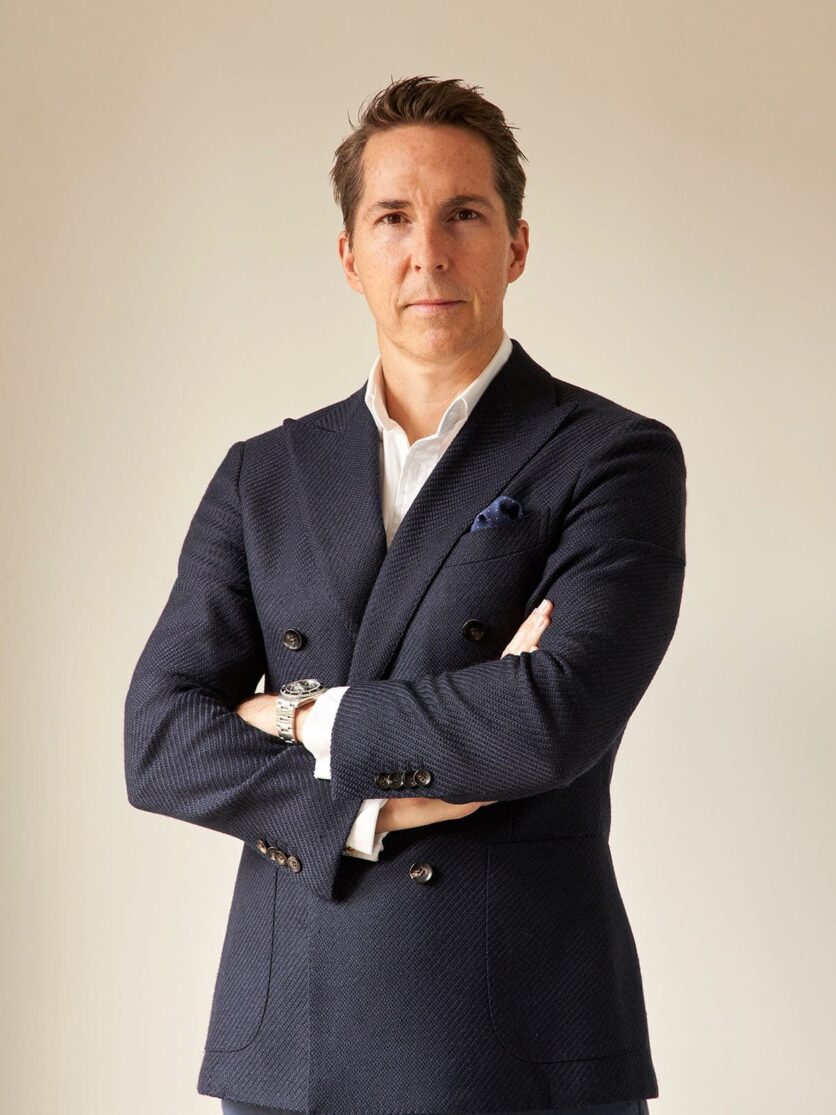
“I’m very proud of what we’ve built with Finchatton,” says Michelin, who, approaching 50, looks remarkably fresh-faced for someone who’s spent the previous two decades on the front line of London’s notoriously topsy-turvy property game. “But I felt that Finchatton was the first part of the book. For the past three years, I’ve had the feeling that I wanted to do more. It was time to move on to the next chapter.”
Michelin will remain a partner at Finchatton until the end 2024, when the company’s current projects are expected to complete. At that point, Dunn will assume control of Finchatton, targeting the country-house market, leaving Michelin to concentrate on “bigger things”. The pair remain very good friends, says Michelin, who puts the parting of ways down to “a lifestyle sort of thing”.
“Valouran is very much about the larger, mixed-use developments,” says Michelin. “We’re going to be all about place-making. You can’t always do them on the scale of King’s Cross or The Whiteley, but I want to go to places where I know that by doing a certain building I’m going to change the streetscape of London for the good.”
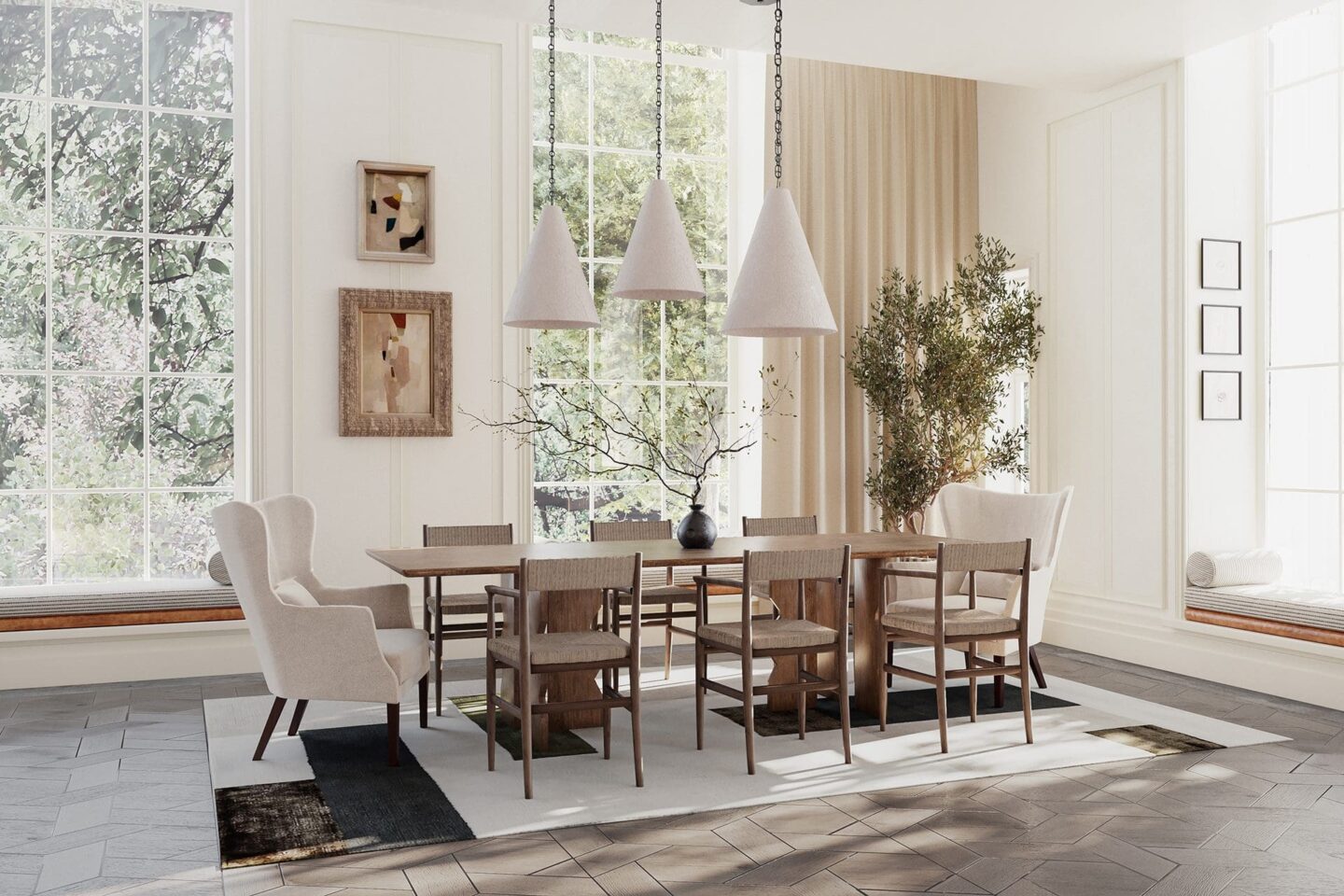
Valouran was established in June 2023 and shares a Soho office with real estate investor MARK, Michelin’s equity partner at The Whiteley. It’s a plush office, with touchscreen lifts. The name, Valouran, comes from ‘valour’, “because you need a shit-load of courage and strength in this business.” The company currently has 12 employees, most of whom followed Michelin from Finchatton. The others have been handpicked from organisations the developer has worked with in the past.
“I’ve probably got 10, maybe 15, years of hard work left in me,” says Michelin, who was born in Jamaica and raised in Antigua. “So I guess I’m looking at that next generation. We intend to make a lot of these guys partners over the next few years.”
Behind-the-façade Developments
Valouran’s inaugural venture saw the company repurpose the Grade II-listed former Connaught Chapel in St John’s Wood into five luxury apartments. Michelin’s bread and butter, in other words. “Yes, it’s true, I’ve become a bit of an expert in doing these behind-the-façade retentions.” Behind the façade. I like that. Good title for an interview with a property developer. “The Whiteley is ‘behind-the-façade’. Our Kingwood development in Knightsbridge is ‘behind-the-façade’. Twenty Grosvenor Square is ‘behind-the-façade’. London being what it is, often you can’t demolish. Luckily, London is a beautiful city with some incredible architecture.” At Michelin’s end of the spectrum, maybe.
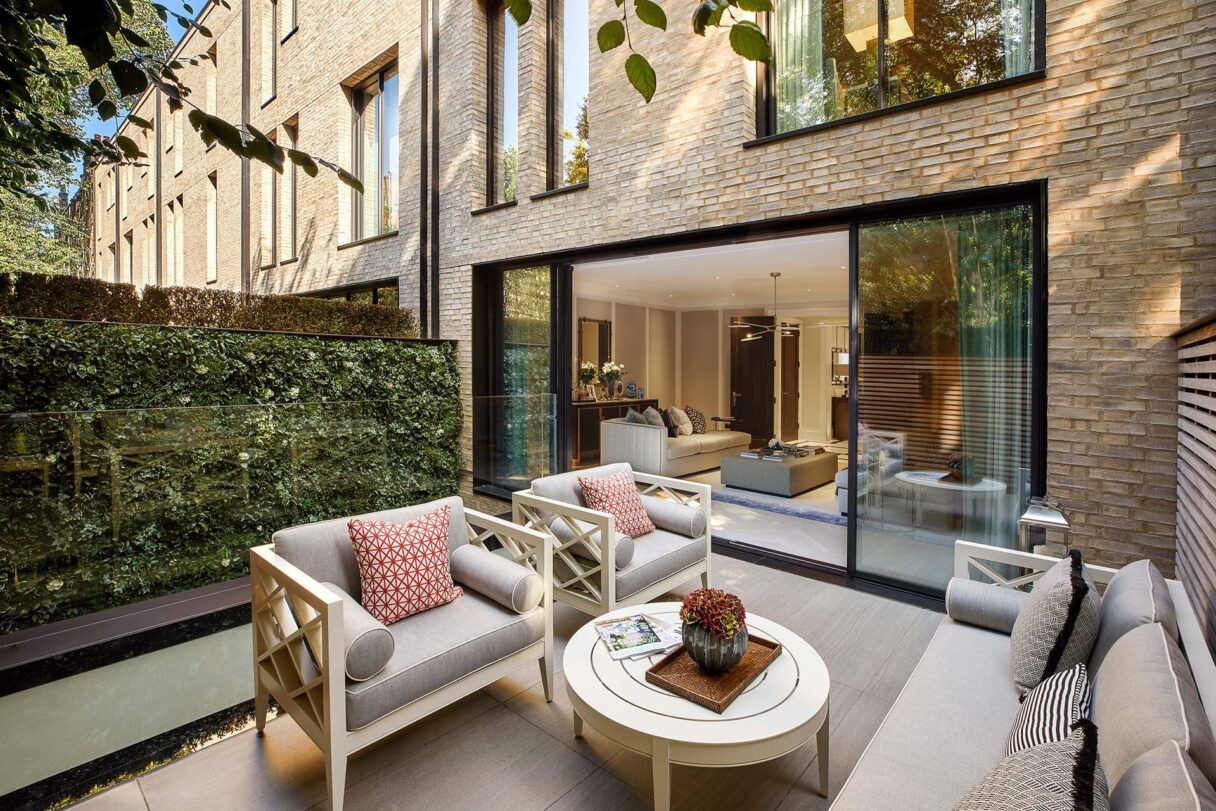
It’s been almost 10 years since independent research centre, New London Architecture, published London’s Growing Up, a first-of-its-kind study that pooled together data regarding the number and type of tall buildings proposed for London. Not since the mass construction of 20-something-storey council flats in the 1960s and ’70s, said the report, was London’s skyline set to be so drastically transformed. Difference being, this new breed of high-rise was to be built for the private sector. And the majority would be much, much taller.
Despite considerable opposition – from local communities, conservation groups, heritage bodies and even architects themselves – London’s planning authorities greenlit 583 towers of 20 storeys or more between 2012 and 2022. As a result, neighbourhoods from Wandsworth to Wapping, from Acton to Old Street, from Tottenham to Lewisham, have been transformed by the march of the aesthetically-uninspiring high-rise. What’s Michelin’s take?
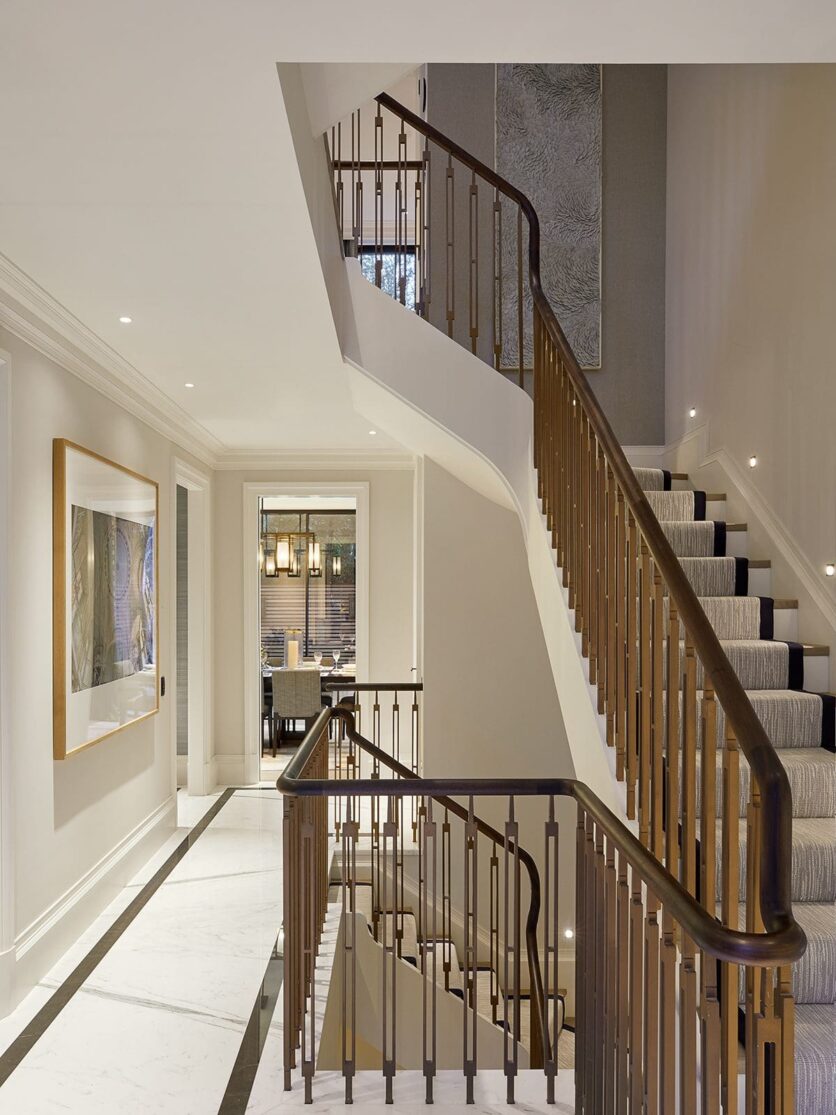
“I’m not a big fan, to be honest. I think what some people try to do is a shiny, glass, Miami-type of thing, but in the Isle of Dogs. And you think, ‘well, hang on a minute, that just doesn’t work.’ People think you can just put architecture anywhere, but you can’t. It has to speak to the place.”
In October 2023, British star architect and founder of Heatherwick Studio, Thomas Heatherwick, launched ‘Humanise’, a campaign against what he called “boring buildings” and “soulless cities”. Backing the campaign was a study that found 71 per cent of those polled said that buildings have an impact on their mental health. Create Streets, a planning advisory body set up in 2012, conducted a study of it. It found that only 27 per cent of those questioned said they would be ‘happy’ living in a tall building.
“I’m not sure some developers really think about how people are going to live and exist in those sort of homes,” says Michelin. “I think we’re at risk of putting up buildings that in 50 years’ time we’ll want to tear down. Because they are not good quality, because they become soulless.”

The first thing Valouran does, says Michelin, is think about how someone is actually going to live. “We are obsessive about architecture and the detail we put onto our buildings. If you have a child, how are they going to get in and out? What are the children going to do on a Saturday? We try to design places that really have energy and flow to them.”
The future of London property development
Valouran will never do high-rise, says Michelin. “It’s just not in my DNA. It’s not what I want to do.” He does, however, make the point that London’s current housing predicament is very much the product of progressive governments meddling in a planning system that has become infuriatingly Byzantine. And costly. Especially for smaller developers.
“There’s a well-publicised lack of homes in the country, yet the biggest reason is because of our planning system. Our planning system is just not good for Britain. It’s a complete bureaucratic nightmare. Everything takes a year or even two years longer than it needs to. There are so many vested interests, so many hoops to jump through. We’re not creating jobs as a result, time is lagging, developments become unviable, because interest rates kill them, or markets move – but the authorities don’t seem to care.”

Michelin highlights Westminster, which, he says, last year received the lowest number of applicants for residential developments it had ever had. “No one is bothering. Lots of developers just don’t want to do it. It’s just too hard. When I first started doing this 20 years ago, getting planning was really quite straightforward, you could do it in three or four months”. What happened? “Layer after layer of bureaucracy. Every government that comes in tinkers with things. Another survey, another test, more tax, even more tax. It’s very hard to make schemes viable in London and I worry that London will suffer as a result. Sorry to get political.” No need to apologise. Let’s go there. Who’s going to win the next election?
“I’m no political commentator but I think it’s going to be difficult for the Conservatives to see a way through.” How about the decision to axe HS2 after Birmingham. Right call? “No. HS2 needs to happen, all the way to Manchester. Yes, these big projects cost a shit-ton of money, but that cost is far outweighed by the economic value they add in the long term. Unfortunately, no one thinks long-term. Everything is so short term.”
What would Michelin do if he were prime minister? “I would unlock the planning system and create a moratorium on affordable housing; maybe the affordable housing quota goes down to 10 per cent, or something, just to kick-start development in London. Because it’s just not happening, nothing is happening. People can’t move up in the world. They are stagnating in their homes.”
Does the sheer level of demand in the capital negate the prospect of a London property crash? “I don’t anticipate London ever experiencing any sort of real crash. Things might come off the boil a little, by 10 per cent, at most, but it’s more likely that the market will plateau. Everyone wants a place in London.”
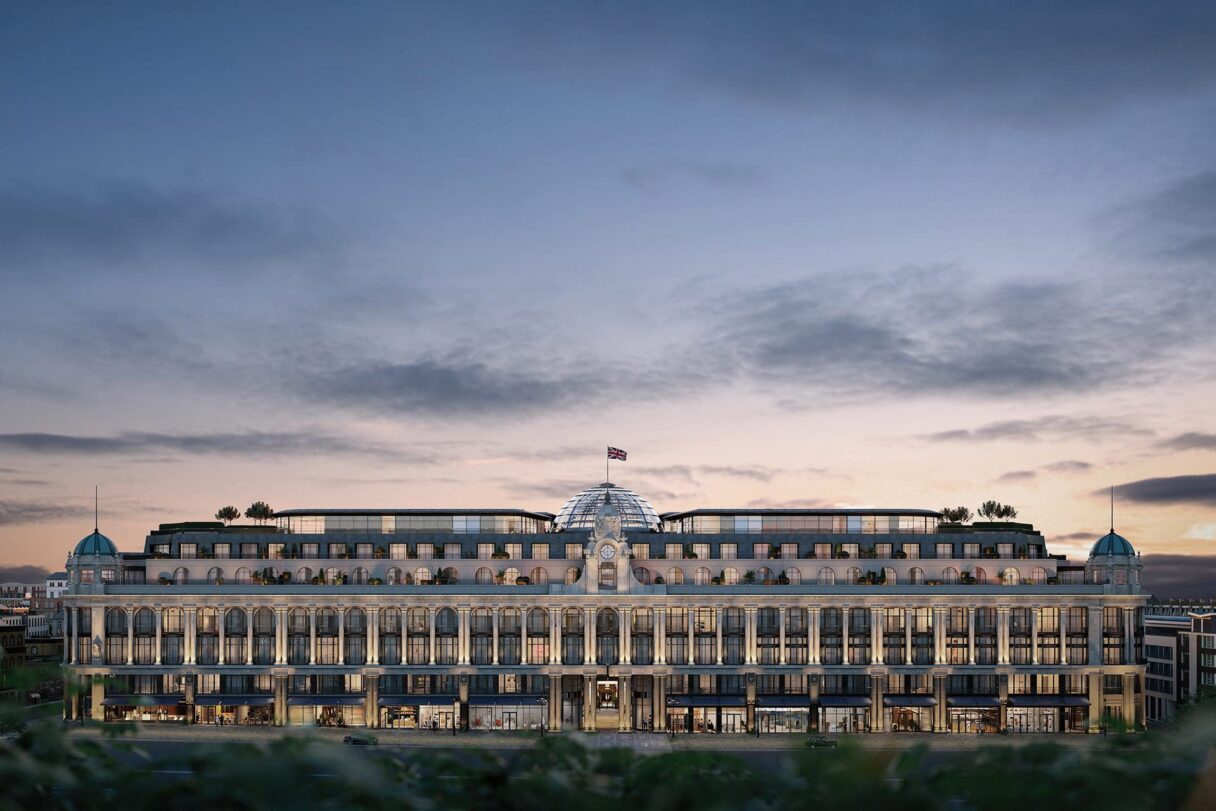
Things are still very much bubbling over at The Whiteley, says Michelin, where they’ve sold apartments worth more than £550 million. Off plan. The speed of those sales has broken records. “It’s phenomenal.” The scaffolding is beginning to come down. I’ve been watching the hoarding disappear from our office windows. Credit to Michelin and everyone involved, the building that’s being revealed, piece by piece, looks a billion dollars. Maybe even a billion and a half.
I needn’t have stressed about the post office, it turns out. Michelin has managed to include a new one in the master plan for The William. “There was a bit of a furore among local residents,” he says. “So we’ve managed to find a place for a new one on the same street. You won’t have to walk too far.”
Phew.
Visit valouran.com
Read more: How the Old War Office became London's most luxurious development


